Student Hannah Reich spent the summer at BIOS conducting coral reef fieldwork for her master’s thesis with mentor Gretchen Goodbody-Gringley, assistant scientist at BIOS. Professor Todd Livdahl, who travels to Bermuda every other year with a team of students studying at BIOS, also investigates mosquito species and to observes the island’s efforts to control them.
In the (Mesophotic) Zone
January 01, 2016
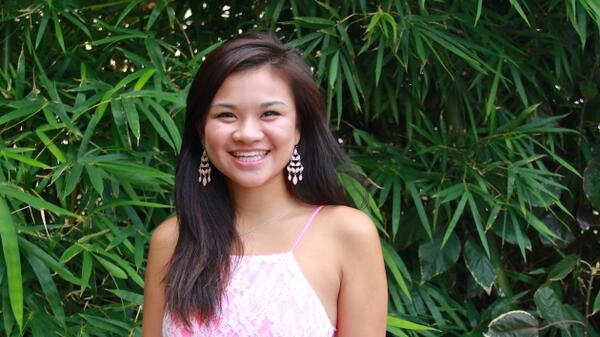
Bermudians know that invasive lionfish like to eat their native fish, and that they gobble them in huge numbers. What they don’t know yet is the full range of the lionfish invasion, though increasing evidence shows that lionfish aren’t afraid to go deep for their meals.
Under Polar Ice, What is the Ocean Like? Ask a Robotics Engineer!
January 01, 2016
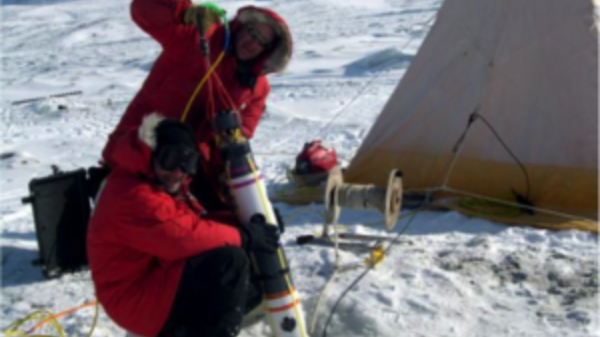
On Friday, January 15th, 110 students, parents and teachers convened at BIOS to place a call to McMurdo Station, Antarctica, as part of the 2016 MARINE program. Engineer and explorer Bob Zook was on the other end of the line to share how his work with Remotely Operated Vehicles (ROVs) helps scientists to explore greater depths and remote regions of the world, like the dynamic Antarctic ecosystems hidden beneath thick sea ice.
BIOS Featured in Online Ocean Education Series
October 28, 2020
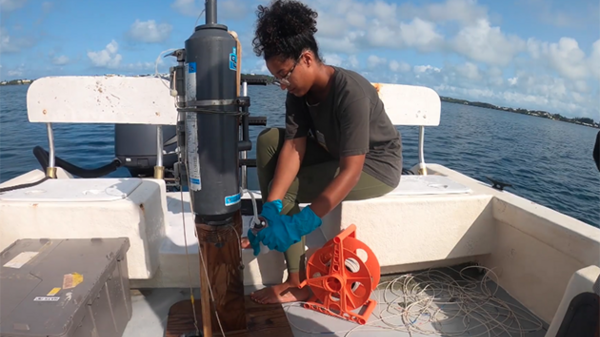
BIOS research initiatives and education programs were the topic of a recent episode of “Ocean Hour,” the online education series produced by the Bermuda Underwater Exploration Institute (BUEI). The third episode of the program, which aired on the organization’s Facebook page on October 9, featured an interview with Lakshmi Magon, a 2018 BIOS Bermuda Program intern and a 2020 BIOS Ocean Academy intern.
Students Learn the Wonders of the Water Cycle
October 28, 2020
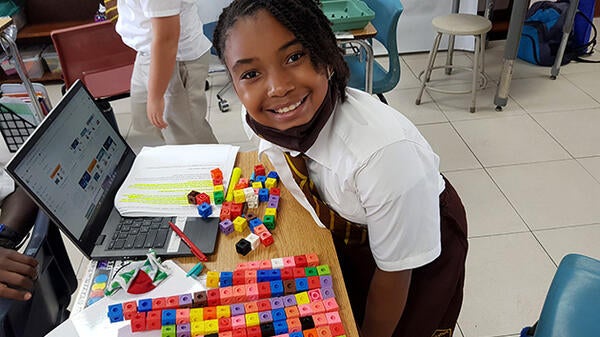
On October 12 and 13, BIOS debuted a new classroom education module focused on the water cycle and weather in Lisa Siese’s P6 classroom at Somerset Primary. The module is part of the Institute’s Curriculum Enrichment Program, which is designed to enhance science, technology, education, and mathematics (STEM) instruction in local classrooms by bringing immersive experiences and hands-on activities to teachers and students.
Canadian Associates of BIOS Celebrates 45 Years
October 28, 2020
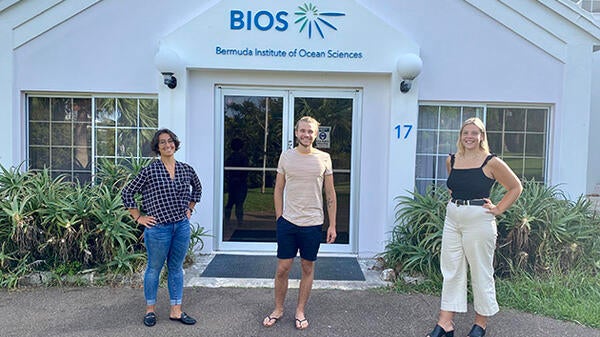
The Canadian Associates of BIOS (CABIOS) was founded in 1975 by the late Dr. Earlston Doe, a former BIOS Life Trustee and Bermuda-born Canadian oceanographer to honor the memory of his youngest son Learmont “Leary” Doe. The program was established to provide support for Canadian students, as well as students studying at Canadian universities and colleges, to participate in BIOS educational programs and research internships.
Mangroves, Microbes, and Greenhouse Gases
October 28, 2020
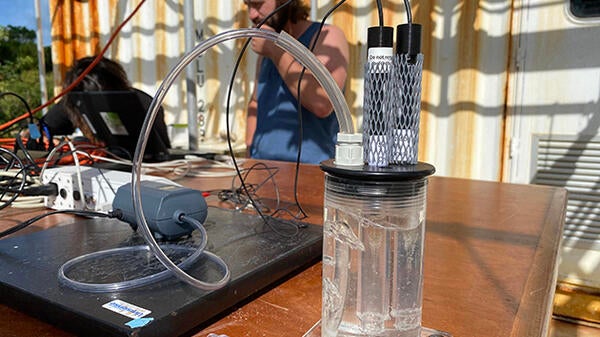
For five weeks spanning October and early November, Brett Jameson, a doctoral candidate at the University of Victoria in British Columbia, Canada, is working with BIOS biogeochemical oceanographer Damian Grundle on a project investigating the microbial production of nitrous oxide (N2O) in low oxygen marine environments.
21 Students in Largest Single Summer Internship Cohort
September 30, 2020
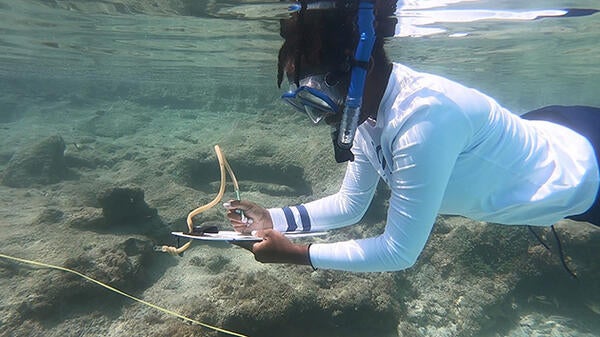
Summer internships for college-aged students were among the educational experiences that were hardest hit by the COVID-19 pandemic. As college campuses around the world shut down, students missed out on opportunities to gain skills in non-classroom settings, network with professionals and mentors, and explore potential career fields.
BIOS Welcomes Fall Undergraduate Interns
September 30, 2020
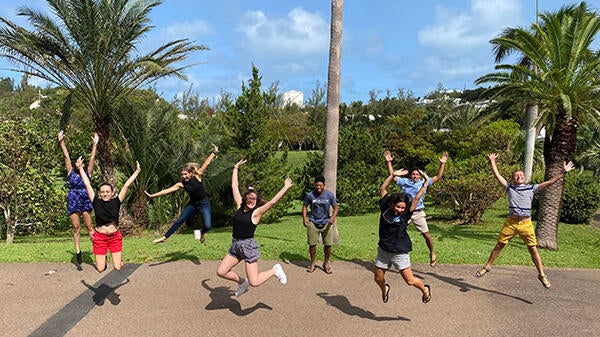
Although fall semester courses at BIOS had to be cancelled due to the COVID-19 pandemic, the Institute’s University Programs department worked diligently over the summer months to ensure the annual Research Experiences for Undergraduates (REU) program, funded by the National Science Foundation (NSF), could still take place.
BIOS Unveils Citizen Science Initiative
September 30, 2020

This September, BIOS is debuting a new citizen science program designed to encourage Bermuda’s residents and visitors to engage with the natural environment by collecting data from around the island. By utilizing an array of online tools and apps, and working alongside BIOS educators, people have the opportunity to directly contribute to ongoing research at BIOS and local conservation efforts.
